
Each member of our lab brings with them a unique set of skills and interests. We love our research team!
Post-Docs
About Sam
Sam completed his PhD in the Clinical Science and Psychopathology Research Program at the University of Minnesota under the mentorship of Dr. Shmuel Lissek and completed his predoctoral internship at the Baltimore VA Medical Center. Broadly, his research is focused on how threat learning generalizes and affects our memories and behavior, as well as leveraging neuroscience frameworks to develop new strategies to help regulate maladaptive fear learning. He is particularly interested in the neurobehavioral mechanisms of higher-order, abstract forms of generalization and their relation to anxiety-related individual differences and broader empirical psychopathology structures (e.g., the Hierarchical Taxonomy of Psychopathology). Sam is also committed to improving methodology at the intersection of experimental psychopathology, cognitive neuroscience, and individual differences sciences using modern multivariate statistical and measurement techniques. He is an enthusiastic advocate of open and reproducible science. His clinical interests are centered on PTSD, OCD, and anxiety pathology. Sam is a New Yorker both in terms of origin and temperament and, most importantly, he has a big dog named Frank. For more Sam, see: samcooperphd.com

Patrick Liang

About Patrick
Patrick has a background in experimental psychology and cognitive neuroscience and completed his PhD at Melbourne Neuropsychiatry Centre at The University of Melbourne, under the mentorship of Professor Ben Harrison. Using lab-based behavioral studies and 7-Tesla fMRI, his doctoral research used novel iterations of the ‘Pavlovian conditioned inhibition’ paradigm to characterize safety learning, the process by which a stimulus comes to predict the absence of threat. He is interested in integrating principles of associative learning theory with contemporary behavioral neuroscience methods (e.g., neuroimaging), with the aim of producing richer brain-based characterizations of behavioral processes, including those implicated in the pathophysiology & treatment of psychiatric illness (e.g., PTSD, anxiety disorders, & others). Outside of research, his interests include music, film, books, travel, & meditation.
About Elizabeth
Elizabeth completed her PhD in Psychology at Texas A&M University under the mentorship of Dr. Annmarie MacNamara. Her doctoral research used EEG/ERPs and fMRI to examine cognitive and affective processes underlying anxiety and depression. Elizabeth is interested in leveraging computational neuroscience and neuroimaging to better understand how emotional learning and memory is implicated in PTSD and anxiety, with the aim of contributing to better brain-based characterizations of these disorders. In her spare time, Elizabeth enjoys spending time with her dog, fiber arts and paper crafts, and reading.
About Alyssa
Alyssa completed her PhD in Neuroscience at Emory University under the mentorship of Dr. Jennifer Stevens at the Grady Trauma Project. Her doctoral research focused on sex differences and longitudinal changes in emotion-related brain function following traumatic events, and utilized functional magnetic resonance imaging (fMRI) to investigate the effects of exogenous estradiol on fear extinction learning in women with PTSD. She is interested in the use of virtual reality and neuroimaging to understand emotional learning, with the goal of characterizing brain processes implicated in psychopathology (PTSD, anxiety). Alyssa’s hobbies include hiking, all sorts of art, playing the piano and ukulele badly, reading, video games, and hanging out with her dog, Mabel.

Graduate Students
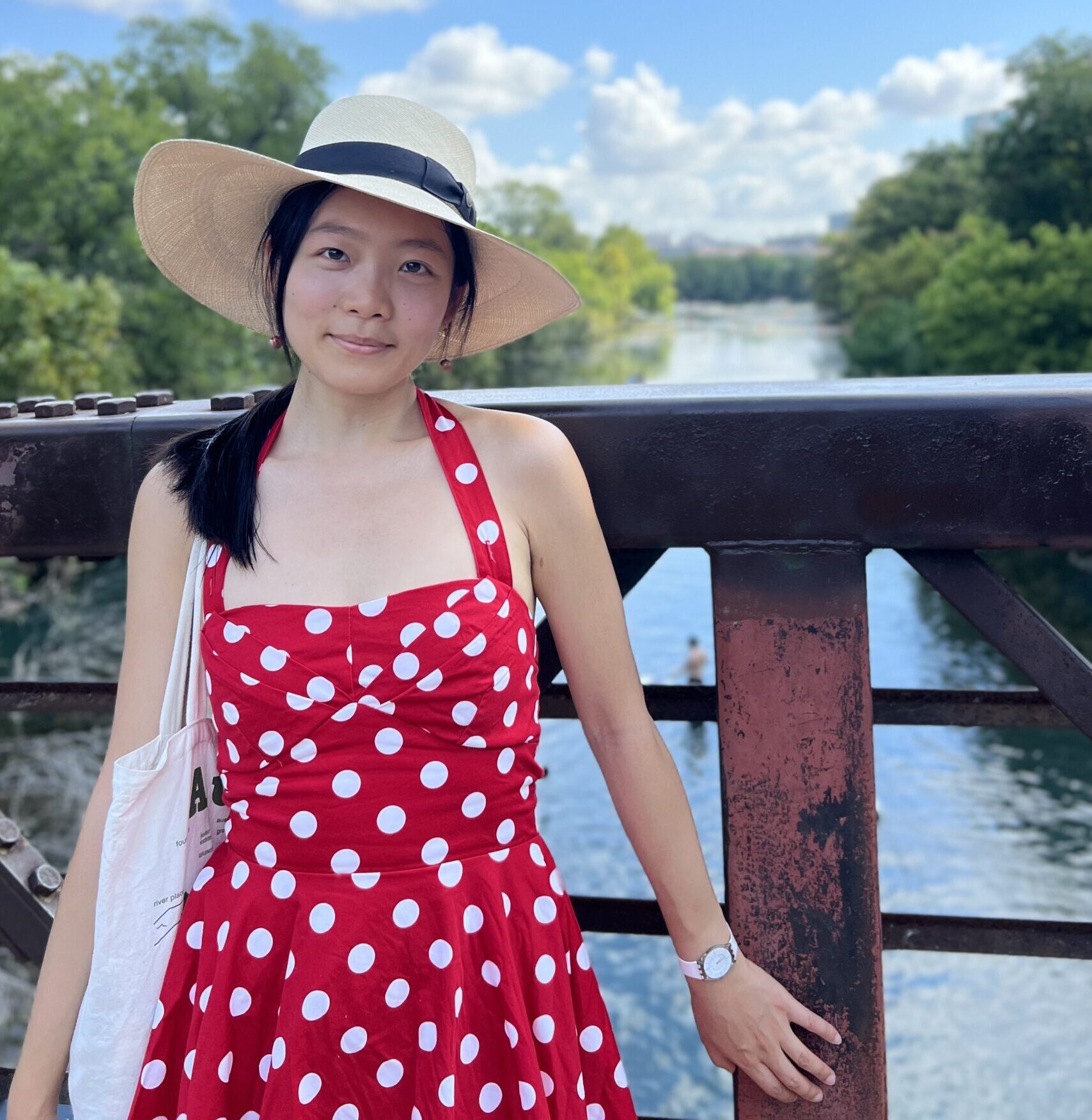 Lingwei Ouyang |
Lingwei Ouyang | 
Lingwei Ouyang received her Bachelor of Arts degree in translation from Zhejiang University, China. After graduation she studied Cognitive Science in Education at Teachers College, Columbia University, where she volunteered at Dr. Daphna Shohamy’s lab to understand how curiosity affects memory. Then she worked for three years at Stanford (Dr. Vinod Menon) and UCSF (Dr. Srikantan Nagarajan) on various topics, such as language processing in primary progressive aphasia, using MEG/fMRI methods. In her PhD she wants to explore how prediction errors affect fear extinction. Besides research, she enjoys ballet, playing the piano, exploring the city and trying new things such as pottery.

Research Team
Research Coordinator/Research Engineering Scientific Associate II
 Sydney Lambert |
Sydney Lambert |
Sydney received her BA in Psychology with a minor in French studies the Fall of 2022. Her previous role in direct care at Helping Hand Home for Children working with traumatized youth propels her interests in researching PTSD and trauma’s impact on memory and behavior. Sydney’s hobbies include writing poetry (French & English), drawing, and hanging out with her gerbil Duck and her orange tabby Wilbur.
Undergraduate Research Assistants
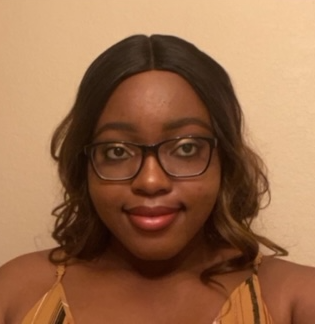 Semi Ojerinde |
Semi Ojerinde | 
Semi is an undergraduate student at UT Austin majoring in Psychology and minoring in Sociology. Her research interests include how trauma and other mental illnesses are processed, acquired, and eliminated in the fear conditioning paradigm. She is also interested in the role that fear plays on cognition, learning, and decision making. Semi’s hobbies include cooking, exploring Austin, watching dramas, and being active in church!
 Kelly Zhao |
Kelly Zhao | 
Kelly is an undergraduate student at UT Austin pursuing a BSA in Neuroscience and the Elements of Computing certificate. Her research interests include the effects of emotion on cognition and memory, along with long-term effects of mental illness and trauma on the brain. In her spare time, Kelly loves table tennis and working out, reading, and gaming with her friends!
 Neha Deosthali |
Neha Deosthali |
Neha is an undergraduate student at UT Austin pursuing a BS in Neuroscience as a part of the Dean’s Scholars Honors Program. Her research interests include studying memory loss and the impact emotion has on memory. In her free time, Neha loves dancing, working out, and cooking.
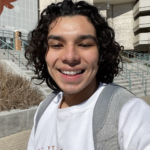 Isaias De La Rosa |
Isaias De La Rosa |
Isaias is an undergraduate student at UT Austin pursuing a dual-major in Psychology and Social Work. He is interested in society’s impact on anxiety and depression within those in marginalized groups. He enjoys familiarizing himself with cultural foods, mainstream media, and indie films, art, and music.

Lizzie Lorber |

Lizzie graduated from UT Austin in 2024 with a BS In Neuroscience and a certificate in Forensic Science. She is interested in the way mental health and emotions are represented in the brain and how that can be used to treat mental health disorders. She enjoys crafting, reading, and traveling whenever she gets the chance.
Lauren Rader |


Lauren is an undergraduate student at UT Austin majoring in Health and Society with minors in Educational Psychology and Entrepreneurship. Her research interests include developing interventions at the intersection of western medicine, holistic practices, and the therapeutic use of psychedelics to treat mental illnesses at their root. Lauren enjoys yoga, going on adventures with her friends, and absolutely everything that has to do with her dog, Milo.


Raghav Krishnan |
Raghav is an undergraduate student at UT Austin pursuing a BS in Neuroscience, a BA in Plan II, and the Elements of Computing certificate. He is interested in understanding the physiological basis behind our emotional generalizations and exploring avenues to reshape our perspectives. In his downtime, Raghav enjoys learning new skills, gaming, and having his sanity tested as a Manchester United fan.

Nicholas Karasik |
Nicholas is an undergraduate student at UT Austin pursuing a dual degree in neuroscience and philosophy with a minor in economics. His research interests include understanding how cognitive systems are negatively impacted in those with affective disorders and developing novel behavioral treatments to mitigate these effects. He is also interested in learning how meditation and mindfulness practices can be used to better regulate mood and anxiety in bipolar disorders. In his free time, Nicholas enjoys tutoring students in STEM fields, listening to podcasts, strength training, and reading philosophy.

Ankita Chitturi | 
Ankita is an undergraduate student at UT Austin pursuing a BS in Statistics and Data Science. Her research interests include the intricacies of memory cognition as well as the intersection of memory and neuroscience disciplines. In her free time, she likes to explore the city, watch movies, and spend time with friends!
Lab Alumni
 Ayesha Nadiadwala |
Ayesha Nadiadwala | 
Ayesha is originally from Pakistan, later settled in California. She received BS in Cognitive Sciences (concentration in Cognitive Neurosciences) along with honors and an Order of Merit from University of California, Irvine, in 2016. Post graduation, she worked as a Clinical Research Coordinator at Stanford University before joining UT Austin’s Neuroscience PhD program. Ayesha is interested in researching how memory processes are influenced by emotion, specifically how memory of when events happened across time is affected by emotional factors. She’ll pursue such questions by leveraging behavioral and neuroimaging techniques under the co-mentorship of Joseph Dunsmoor and Alison Preston. She hopes that some of her research will have clinical implications, especially for PTSD and depression. Ayesha loves animals (especially her two cats!), driving (not in traffic), and trying new adventures. Ayesha received her PhD in Neuroscience Spring of 2024.
 Cheyenne Ahamed |
Cheyenne Ahamed |
Cheyenne received her BS in biomedical engineering with a Pre-Health Professions certificate in May of 2023. As an undergraduate she was involved in sono-optogenetic research with applications to Parkinson’s disease in the Wang Lab and has also worked with Dr. Brode on his Post-COVID-19 Program through the Dell Med HLA program. She is interested in researching the behavioral and long-term effects of fear. In her free time, Cheyenne enjoys reading, attempting new recipes, and playing soccer. Cheyenne is now attending UT Dell Medical School for her MD.
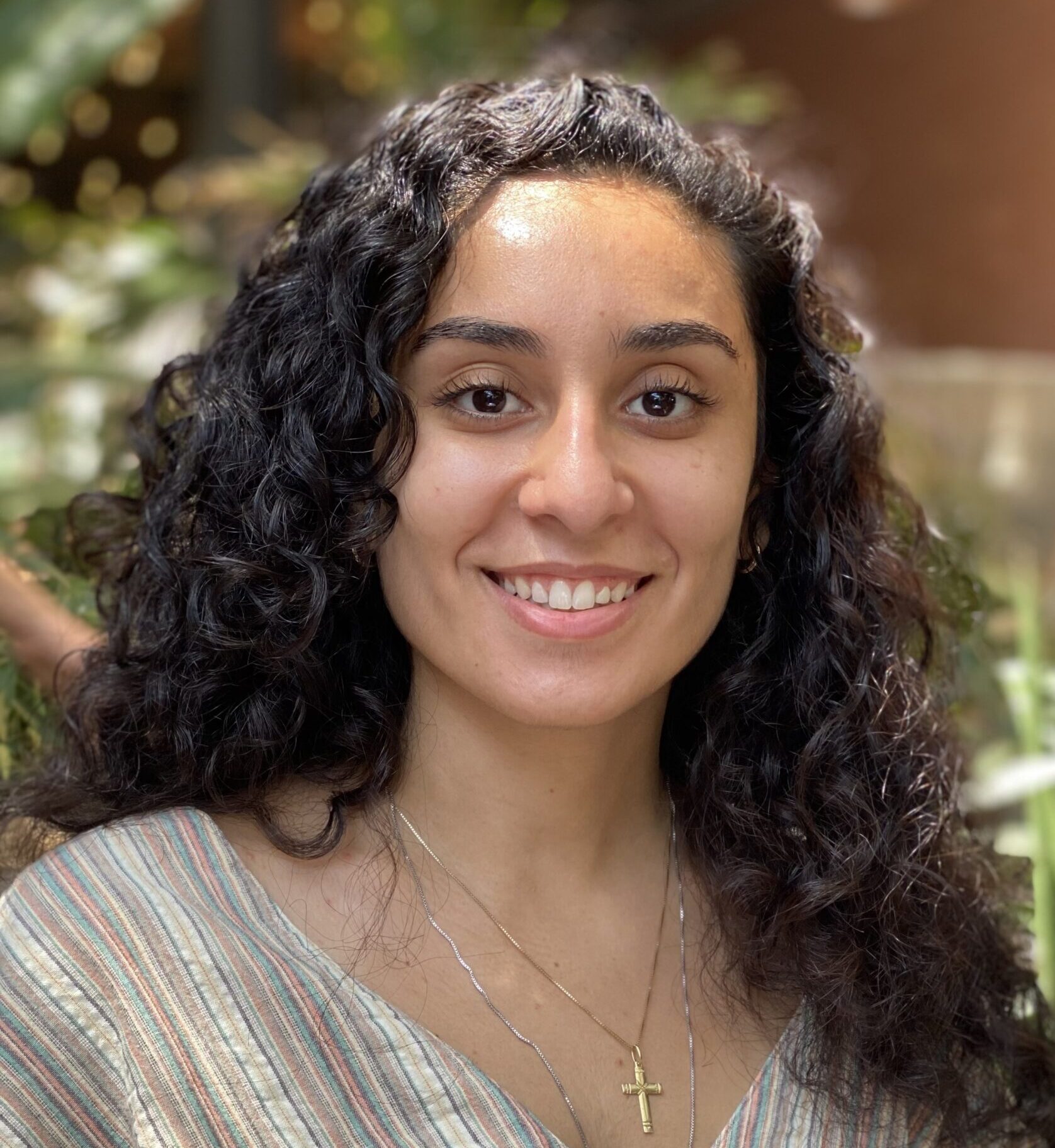 Ameera Azar |
Ameera Azar | 
Ameera graduated in May of 2021 from UT Austin with a BSA in Neuroscience with a certificate in Pre-Health Professions. She worked as a Research Assistant in the Preston Lab for two years during her undergraduate studies and plans to earn a PhD in Clinical Psychology. She’s interested in how trauma affects memory in neuropsychiatric clinical populations.
 Sophia Bibb |
Sophia Bibb | ![]()
Sophia received her BSA in Neuroscience honors with a certificate in Evidence and Inquiry: The Biological Basis of Sensitivity from UT Austin in May of 2021. She worked as an undergraduate research assistant in the lab since the Summer of 2019 and served as the lab manager/research associate until Spring 2023. Sophia is currently pursuing her PhD at Ohio State University under the mentorship of Stephanie Gorka & Zeynep Saygin. Sophia’s research interests involve the role that temperamental sensitivity plays in how individuals acquire and process trauma, especially PTSD and complex PTSD. In her free time, she dances, does theatre, lifts weights, and cuddles her dog Jersey.
 Nicole Keller |
Nicole Keller | 
Nicole Keller, a Costa Rican native, received her Bachelor of Science in Neuroscience and a Business Foundations Certificate at the University of Texas at Austin. She recently received her PhD in Neuroscience from the Institute of Neuroscience. Nicole’s research interests include, but are not limited to, the opposing roles of reward and fear in human learning and memory–particularly, the effect of reward on fear extinction. Through the use of psychophysiology and neuroimaging methods, she is investigating how the presence of a reward during fear extinction can enhance the function and efficacy of a safe memory, and further prevent relapse of fearful behaviors. Outside of the science, she thoroughly enjoys being in the presence of her cat, Ivy, buying plants, and learning French.
 Carola Salvi | CV
Carola Salvi | CV 
Carola received her Ph.D. in Experimental Psychology, Linguistics, and Cognitive Neuroscience at the University of Milano-Bicocca where she began studying the neural mechanisms underlying creativity. Carola worked as a postdoctoral fellow at Northwestern University and the Shirley Ryan AbilityLab in Chicago, where she narrowed her interest to studying idea generation, specifically insight problem-solving (the “Aha!” moment). Carola’s work aims to understand the following: the role played by reward (and the dopamine system) in creativity and insight problem-solving; the involvement of the vision system in idea generation; and the role of the right anterior temporal area when people have creative insights. Carola contributed to pioneering the “accuracy effect” associated with “Aha!” moments, demonstrating that the feeling of certainty that accompanies creative ideas is warranted by high accuracy. Her work counts the first Italian versions of the Compound Remote Associates problems and the Rebus Puzzles, enabling researchers to investigate the insight problem among Italian speakers. She has experience working with TBI, Parkinson’s and neglect patients, and has mastered several techniques of research such as eye-tracking, imaging, and brain stimulation.

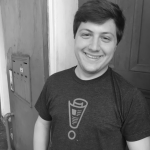 Gus Hennings |
Gus Hennings | 
Gus Hennings graduated from UT Austin with his Ph.D. in neuroscience in 2022. His dissertation was titled “Contextual processes in Pavlovian conditioning and extinction: insights from episodic memory.” He is currently a post-doctoral research fellow working with Dr. Ken Norman at Princeton University, where he is using real-time fMRI neurofeedback to develop interventions for PTSD. Previously, he graduated with honors with a B.S. in Neuroscience from The College of William and Mary in 2016.
For more Gus, see: achennings.github.io

 Mason McClay |
Mason McClay | 
Mason McClay received his BS from Centre College in Behavioral Neuroscience and a BA in Classical Studies in 2017. Mason’s research interests involve emotion regulation and the flexibility of self-identity and their implications on memory. Mason is currently pursuing a PhD at UCLA under the mentorship of Dr. Dave Clewett and having all his Zoom meetings on poor internet connections in state parks!
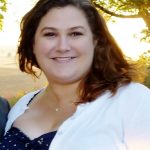 Emily Leiker | CV
Emily Leiker | CV 
Emily earned her Ph.D. in Psychology from the University of Missouri in 2017, where she investigated how memory content and quality are instantiated in the brain during the act of remembering, using EEG, fMRI, and advanced pattern classification methods. After completing her degree, Emily worked as a Postdoctoral Research Fellow for the Center for Neurobehavioral Research at Boys Town National Research Hospital, where she contributed to a large-scale longitudinal neuroimaging study of emotion cognition interactions in youth with diverse behavioral and emotional problems and psychopathology. Emily is currently a postdoctoral scholar at the University of Pittsburgh!
 Jarid Goodman |
Jarid Goodman |
Jarid Goodman held a post-doctoral research associate in the laboratory of Joseph Dunsmoor at the University of Texas at Austin from 2017-2018. Jarid received his PhD in Neuroscience at Texas A&M University in 2016 and has previously served as a postdoctoral research scientist in the laboratory of Christa McIntyre at the University of Texas in Dallas. His research interests include the neurobiology of multiple memory systems and emotional modulation of memory. He is now assistant professor of Psychology at Delaware State University!

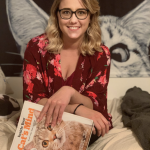 Carly Hatchell |
Carly Hatchell | 
Carly Hatchell received her Bachelor of Science in Biomedical Engineering and a Business Foundation Certificate from the University of Texas at Austin in 2018. Carly’s research interests include PTSD and the role of early emotional or traumatic experiences in learning and development. She grew up in the Netherlands, and she is passionate about mental health, meditation, science, and her cat, Mr. FitzLokerton McMeowMeow.







